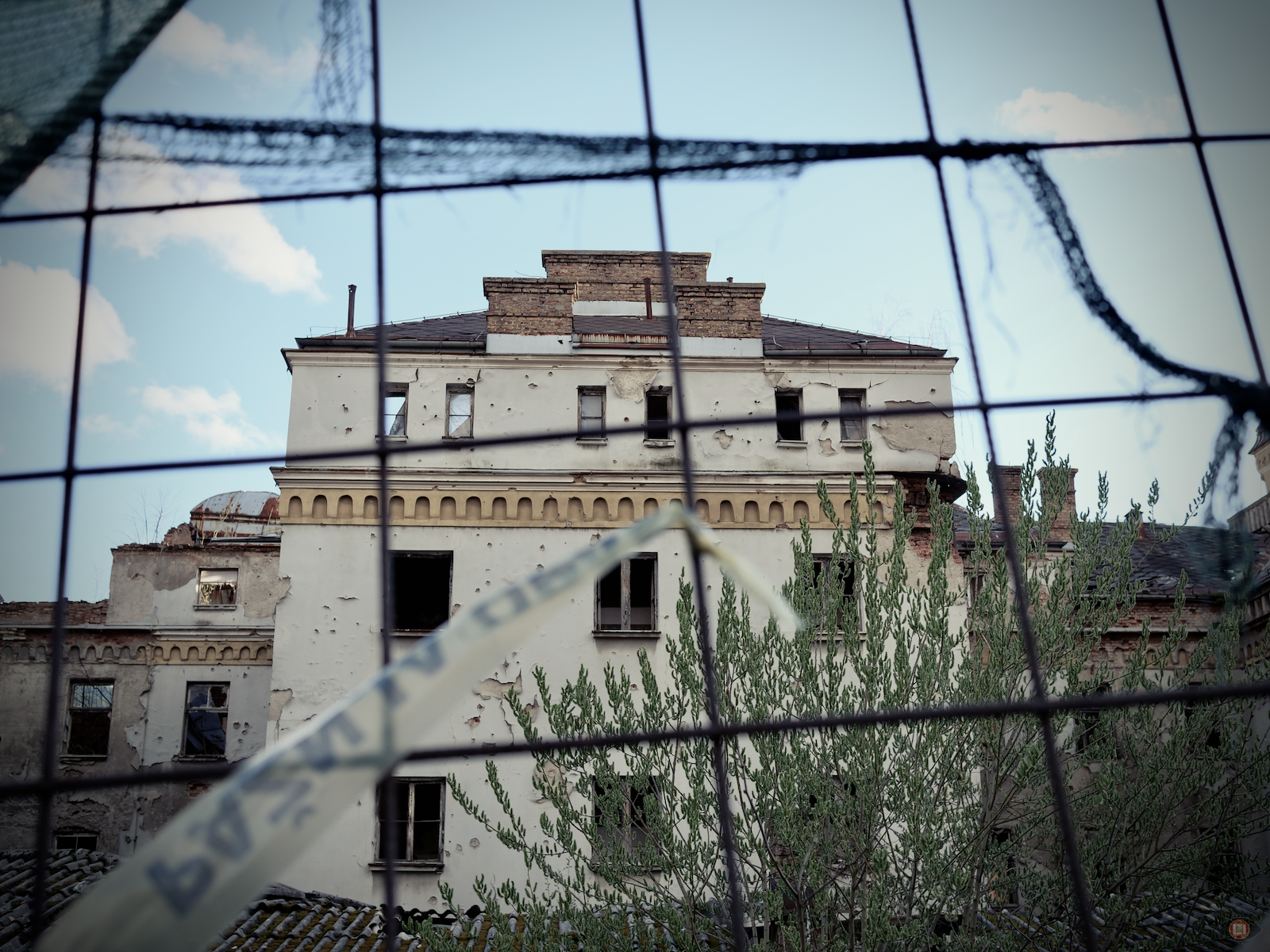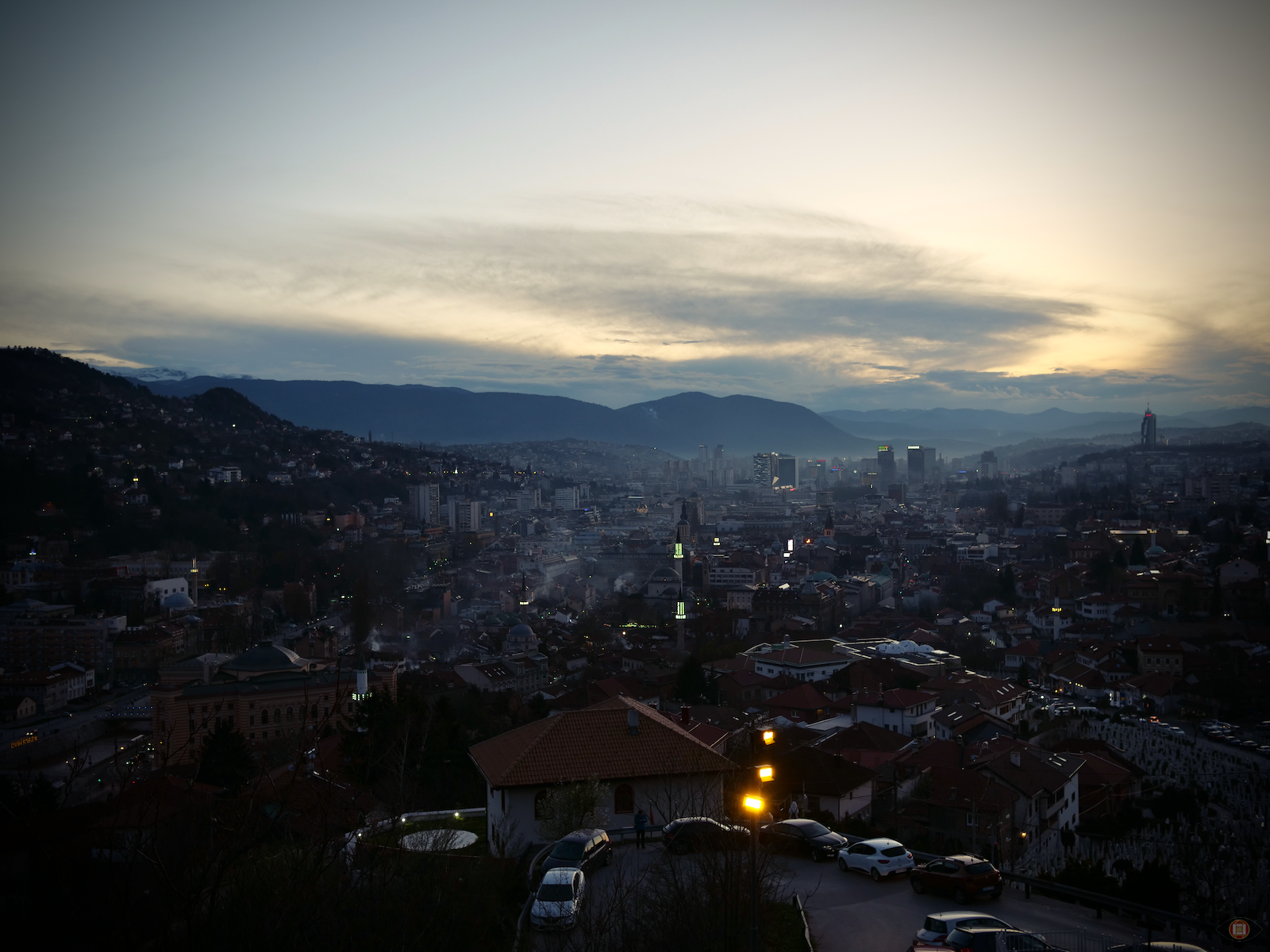Sarajevo
September, 2023
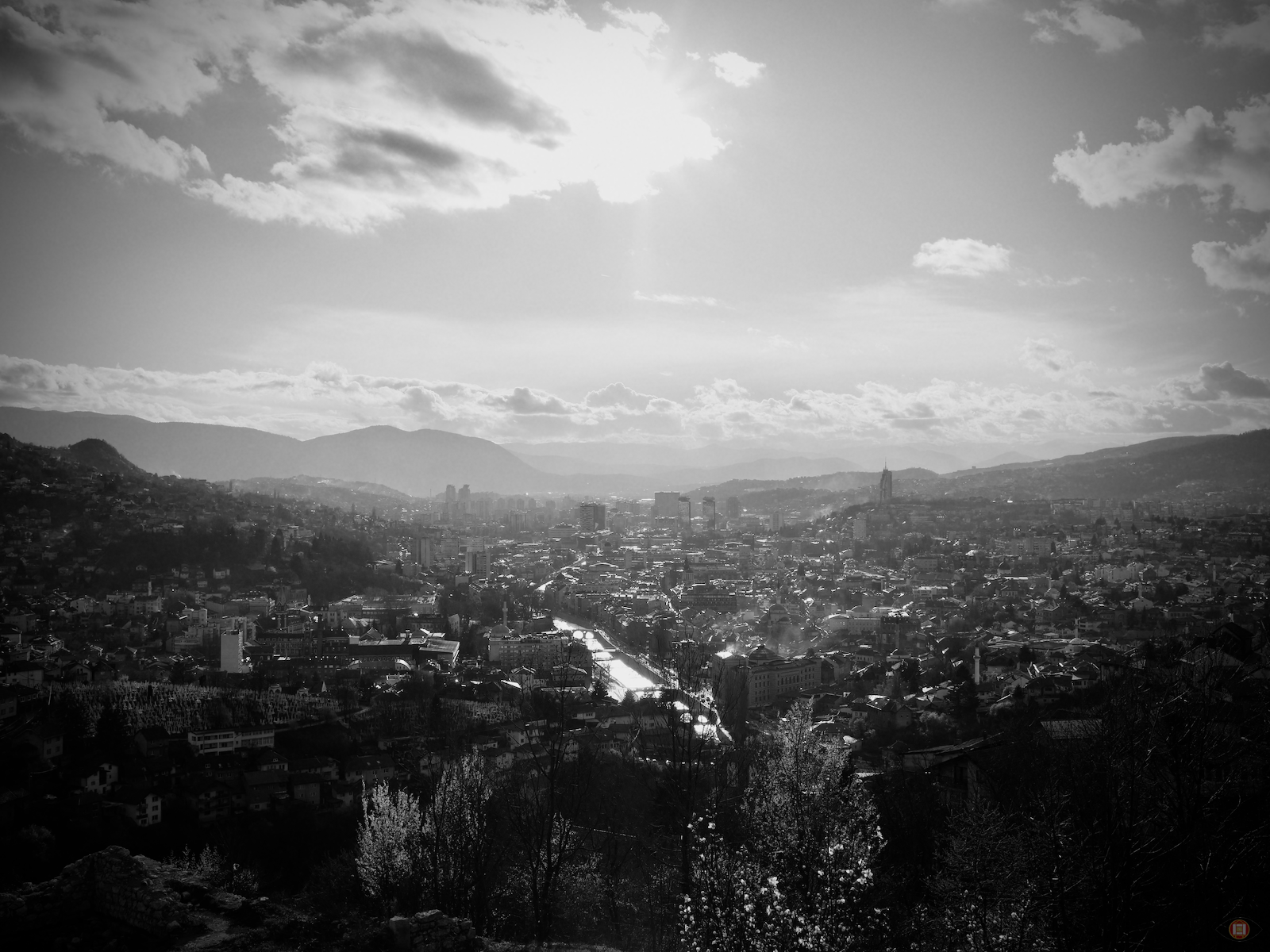
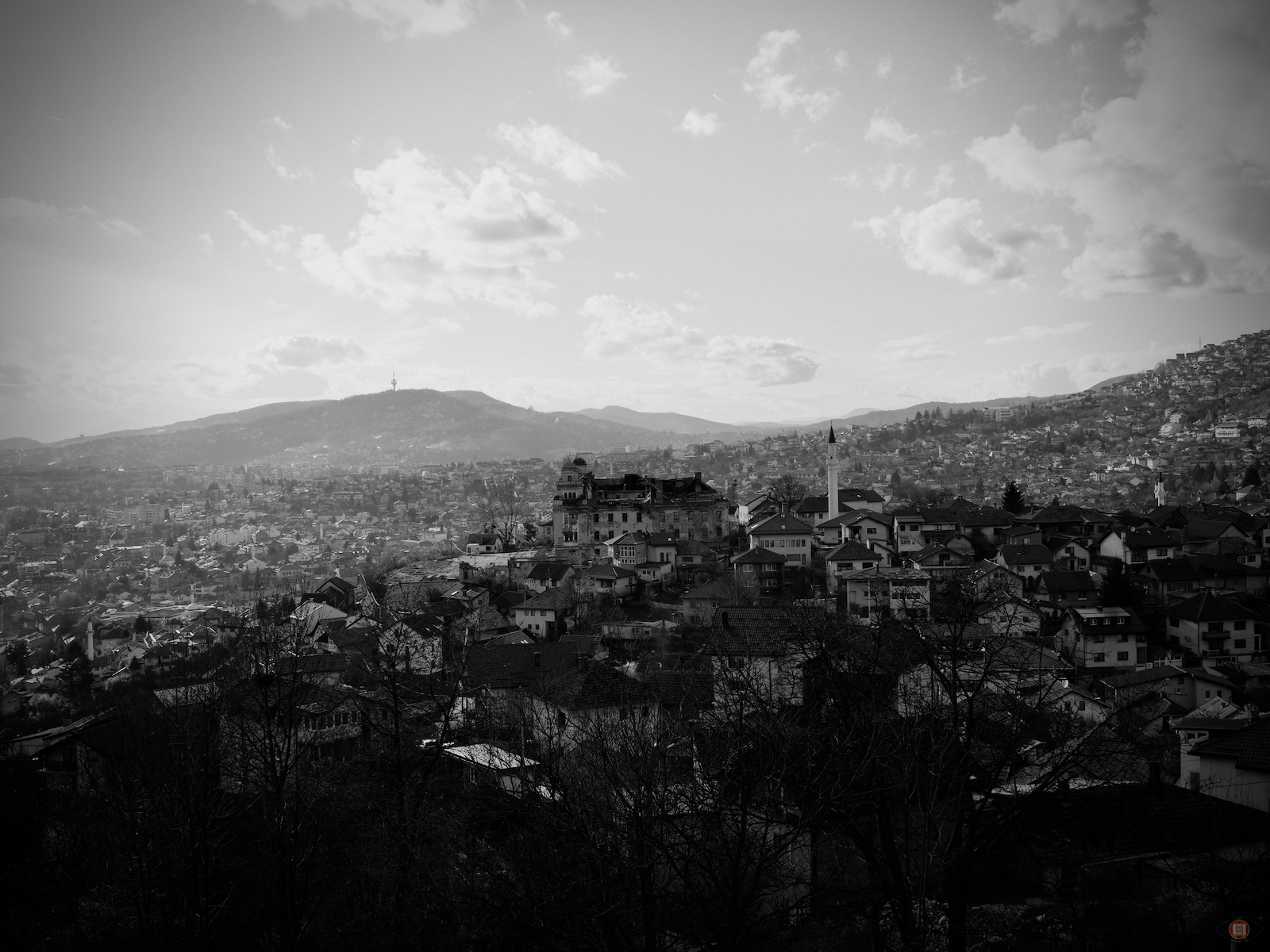
The bus winds slowly across mountain passes and fields all day; worn-out, brown seats rock and shudder like electric chairs; out the window, epic gunmetal mountains cap enormous tufts of threatening, energy-sapping clouds; freshwater lakes flash by; swaths of forest devour the landscape like relentless marching armies. Here and there, a warning replete with skull and crossbones emblazoned onto traffic-rammed signs jut out from churning rivulets choked with plastic refuse:
’OPASTNOST!
DANGER UNEXPLODED MINES!’
Minarets and pastel-painted collapsing farmhouses; stretches of vast barren gold, blue and black like Van Gogh’s last work. Intermittently the heavens open and set dump yards with stacks of rust bucket cars ablaze with glorious end-of-day sunshine––perpetually shining up there beyond the ceaseless lightshow below.
The bus unexpectedly pulls into a rest stop. Like zombies aching awake from the grave, we all slowly get up and shuffle out. Everyone smokes. The bus driver barks to haul our baggage out the hold, which we obediently do. Then without another word he gets into his own car and drives away. Standing there in the dark, no idea what happens next, I turn to my companion; we laugh, imitating thick foreign accents:
‘Welcome to Balkan.’
We left Split that very morning en route from Hvar; quiet, serene island life has come to a shuddering close. It is hard to believe we departed this same day; amber headlights penetrate thick smog on the highway as we speed towards the capital of Bosnia & Herzegovina. It must be 1 in the morning. On the far distant horizon, civilisation appears in the wilderness like phosphorescent Christmas tree lights ascending from the valley up into the hills; utter blocks of Soviet concrete, sickly green and furious red traffic signals slung on wire cords drape roads and roundabouts. The bus skids off the freeway and rounds a corner, grinding to a halt in front of the bus station.
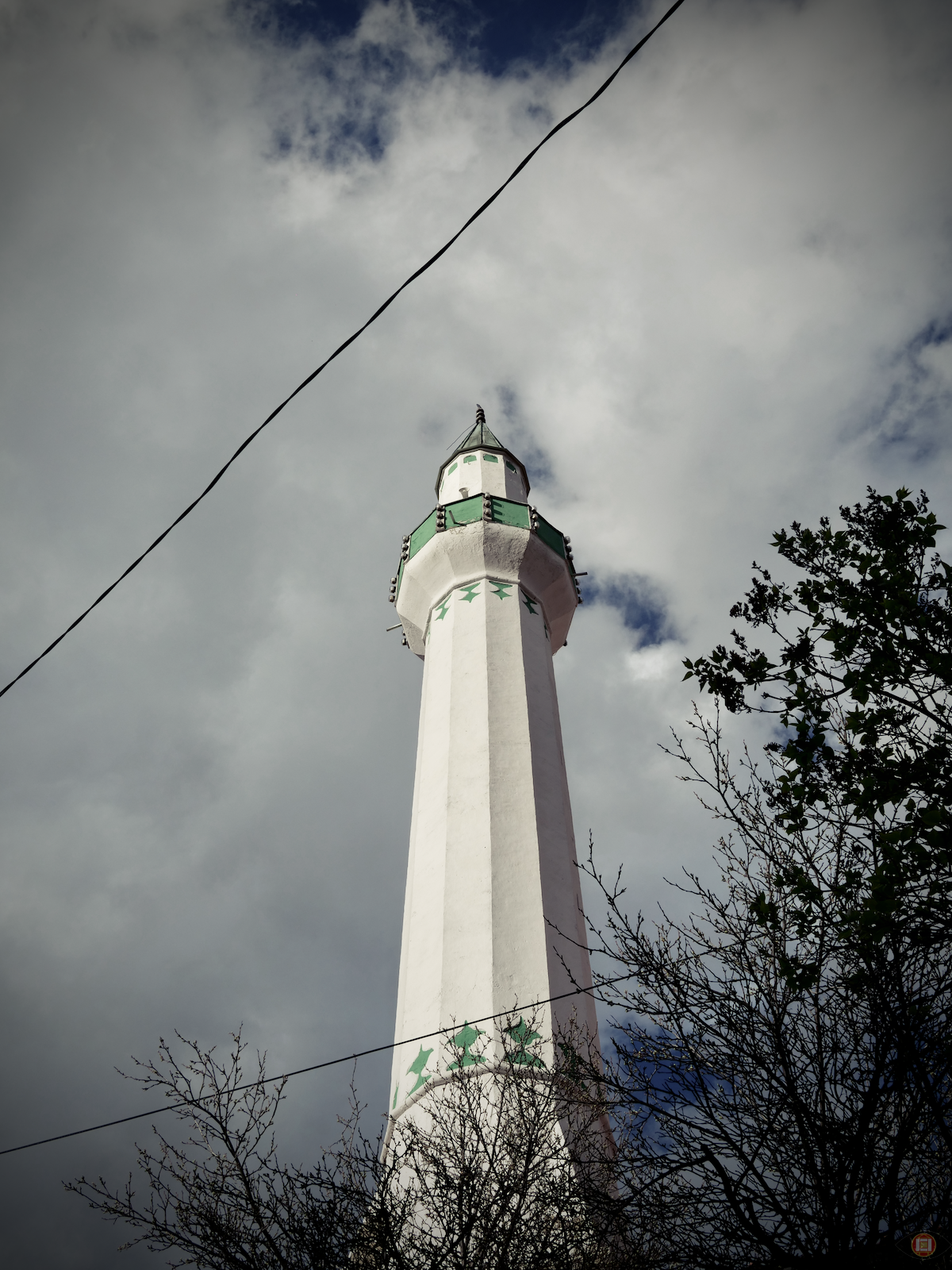
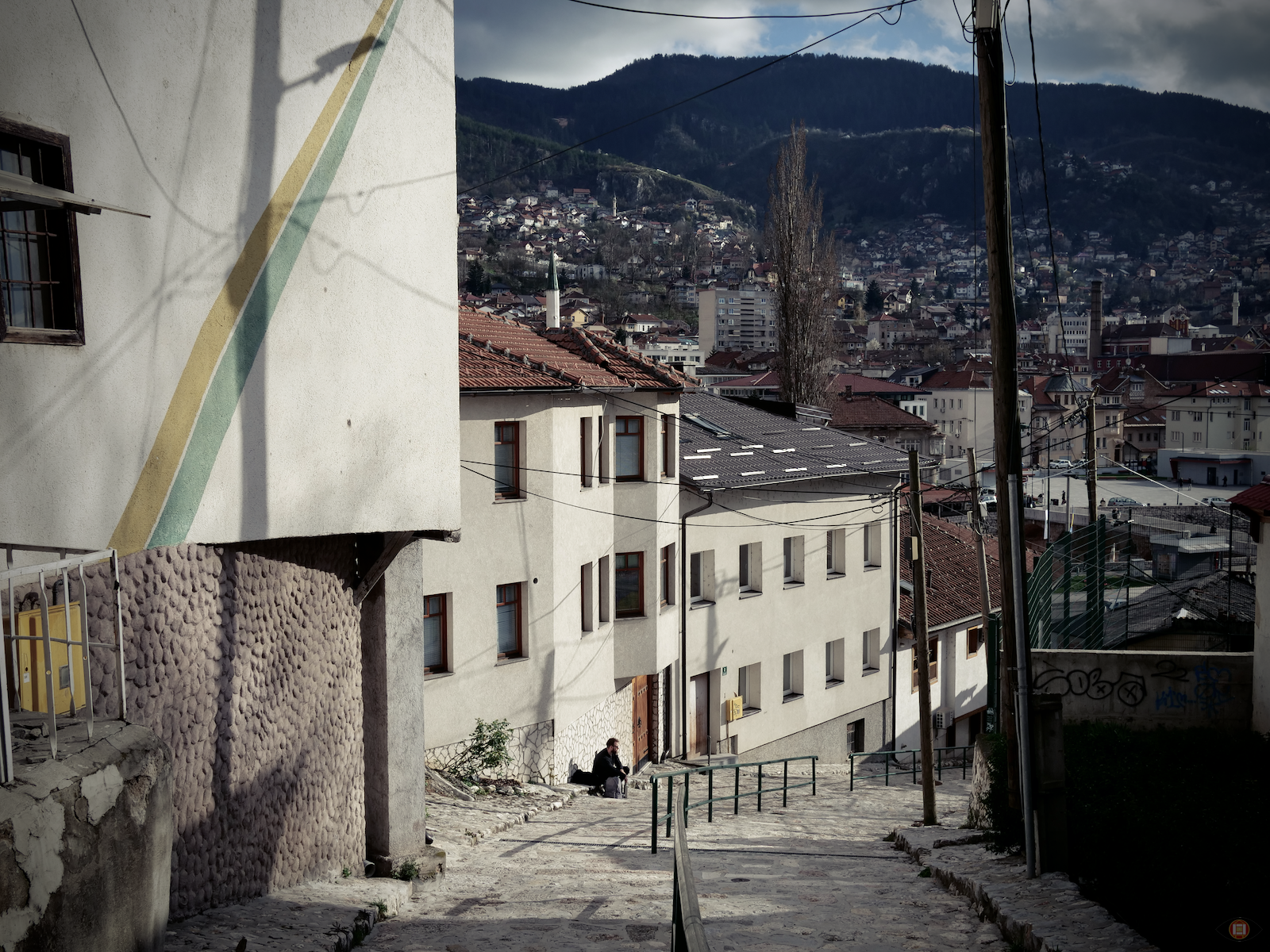
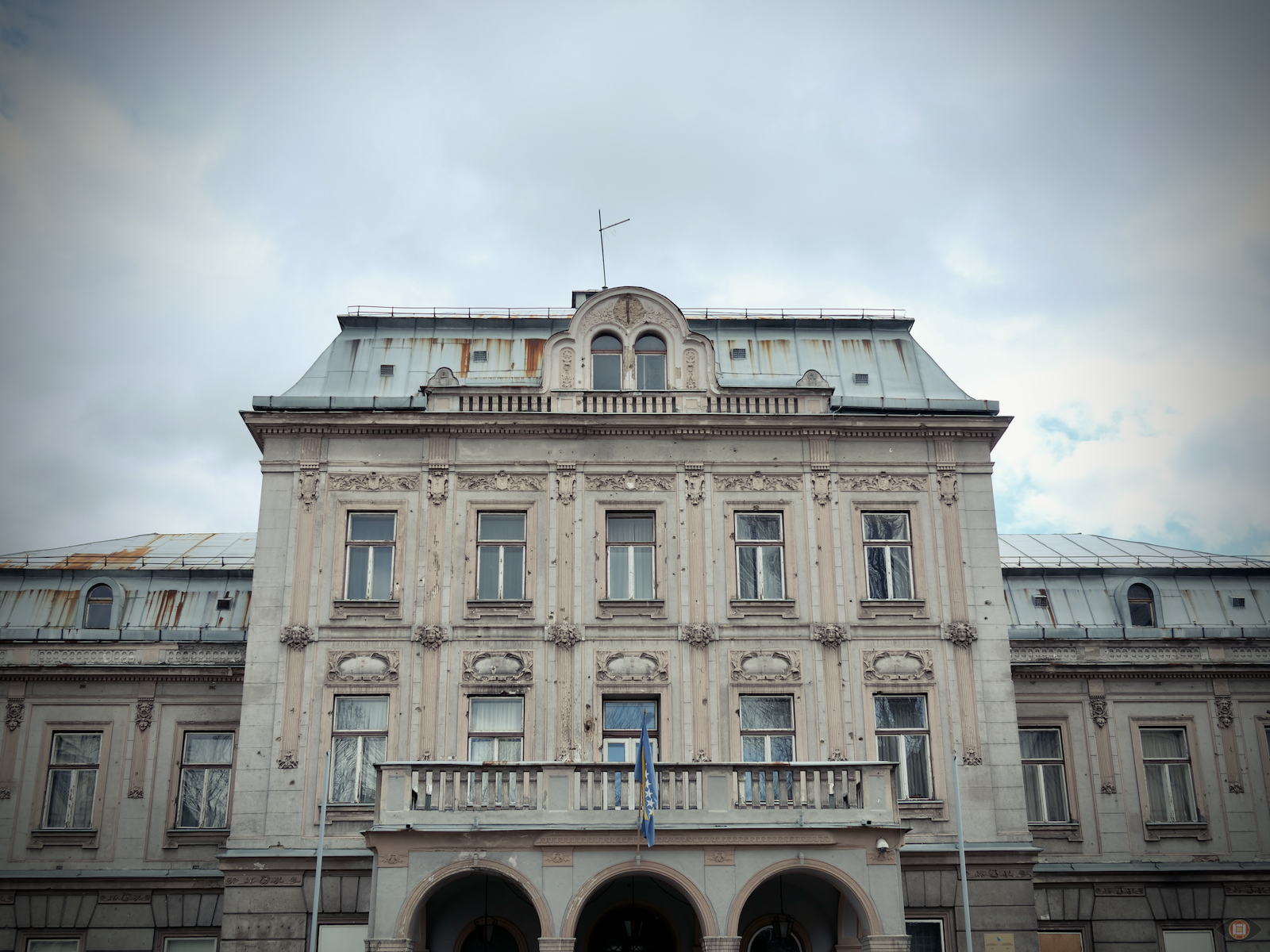
We have no cash. My companion sets off for an ATM and I wait with the bags.
‘What a fuckin rip-off. They wanted 5 fucking euros to withdraw money. I already don’t like this place.’
A taxi driver wants €30 to take us up a hill to our lodgings. We walk instead, laden down with our worldly possessions up a steep incline past endless traffic below; a Czech oak chopping board picked up in Malta, a film camera tripod all the way from Australia; impractical necessities burdening weary travellers.
We let ourselves into the block of flats with a key safe. A door swings open to an expansive, freshly-renovated apartment with high ceilings, so unsuspecting from the tired exterior. The centrepiece wraparound couch that dwarves most of the room belongs in so many Turk and Arab homes, ditto the enormous, marvellously glam light fixtures–––gold, gold, gold, everywhere the glint of flashy gold…but not one plate, saucepan or fork in the cupboards…
‘They don’t want us to cook and scratch the new surfaces.’
I laugh.
‘That’s probably spot on.’
Our host arrives to welcome us; she is very beautiful with thick black hair; in perfect English she speaks softly, elegantly, drawing us in.
‘Where can we eat?’
‘Baščaršija. The old market. There are many shops open now. Ramadan fast broke at sundown and everyone is eating. You can walk there from here.’
︎
Flocks of nesting pigeons watch us as we walk across deep, worn slabs of stone; the bullet-sprayed walls catch the shadows of veiled women, the squared-shouldered men like Weimar Republic woodcuts. Pick any ethnic appearance, you will find it here; like so many places in Eastern Europe, petit pallid blue-eyed faces mingle amongst bold black eyebrows and luscious lips.
Could be a Serb, could be a Turk, could be an Italian, or an Austrian––who knows, who cares; beautiful faces, flushed in the cold of Winter’s thawing, warmed by bosanska kahva poured out in dainty lacework cups of faux silver and gold.
Fountains trickle mountain water straight onto the faces of gleeful children splashing and laughing while watchful parents stand guard. It is easy to forget what happened here on a cheerful night like this, though not entirely…
No matter the jolly eateries and overflowing sweet shops, an unmistakable eeriness hangs over this place; a foreboding presence that cannot be pinned down; edgy without anything necessarily indicating dis-ease.
We take the main promenade, jacked up on the thick tar coffee; I drank too deeply and my tongue is coated in bitter black slick.
Passing a baklava shop, its keeper hangs in the doorframe, dark hijab. She speaks to us a mile a minute, again in perfect English. My companion and I both love to talk, and this woman is in love with the night, the tinkling of glasses, seeing foreigners visiting her beloved city. She jives about covid, travellers, war, the Balkans, Sarajevo:
‘When Putin invaded Ukraine, everybody grabbed their guns.’
She throws her head back, laughing death in the face.
‘My Dad remembers the war, I don’t remember anything. I just want everyone to stop fighting. You’re Croatian, i’m Bosnian, he’s a Serb! Good for you! Who cares! We are all people!’
She places her hand over her heart. Looks up to Heaven.
‘I love Sarajevo so much! This place is so special to me!’
She turns to us, staring pleadingly into our eyes:
‘Don’t mess with Sarajevo. Please leave Sarajevo alone!’
︎
The sun is up and my companion and I are fighting, again. God knows why this time. To make up, we eat, stepping into a tiny shop, greeted by curious faces. There are massive trays of freshly-baked börek laid out behind glass; the very same noted on the Dalmatian islands off the peninsula; the Ottomans spread far and wide; to this day, their disputed legacy is unmistakably present, part of the richest tapestry of this howling corner of the world.
Stretching our legs we walk out of the city, up onto a high pass in the hills engulfing the valley below. Leaving the path, we cross a stretch of overgrown scrubland; dogs growl behind barely-standing gates; mud cakes under our shoes; fir trees without needles, stark, bombed-out ruins. The city shimmers like a mirage up here framed by countless, pristine, white gravestones. We are getting closer to the East indeed––we have come to a pivotal crossroad. I feel very lucky to be able to admire this city from the former sniper positions of those who––in my own lifetime––cut down Sarajevans without mercy.
We stop in at a tea house on the way back down to the city; late afternoon sunlight pours in bathing rickety tabletops and Russians bantering over flavoured soda. The waiter comes to take our order and asks us where we’re from. He is a native of this place, and is presently fasting for Ramadan. At dusk we are told cannons will be fired above the city to mark the end of fast. He points out the bastion that hosts this nightly festivity during the Holy Season; already a large crowd is massing there; families, young couples in love, friends preparing elaborate picnics, or carrying fast-food kebabs getting soggy in their wrappings.
‘As a Muslim the fast reminds me to be close to God. That God is the Master who gives us all. It is a time for charity, for kindness.’
He is solemn; the sentiment is refreshing coming from the West, where most living faith other than the market is estranged from these times. My companion leaves to save us a spot and I ask for the bill. I don’t exactly know what money to give him; he takes it from my hands and turns it into change.
Stretching our legs we walk out of the city, up onto a high pass in the hills engulfing the valley below. Leaving the path, we cross a stretch of overgrown scrubland; dogs growl behind barely-standing gates; mud cakes under our shoes; fir trees without needles, stark, bombed-out ruins. The city shimmers like a mirage up here framed by countless, pristine, white gravestones. We are getting closer to the East indeed––we have come to a pivotal crossroad. I feel very lucky to be able to admire this city from the former sniper positions of those who––in my own lifetime––cut down Sarajevans without mercy.
We stop in at a tea house on the way back down to the city; late afternoon sunlight pours in bathing rickety tabletops and Russians bantering over flavoured soda. The waiter comes to take our order and asks us where we’re from. He is a native of this place, and is presently fasting for Ramadan. At dusk we are told cannons will be fired above the city to mark the end of fast. He points out the bastion that hosts this nightly festivity during the Holy Season; already a large crowd is massing there; families, young couples in love, friends preparing elaborate picnics, or carrying fast-food kebabs getting soggy in their wrappings.
‘As a Muslim the fast reminds me to be close to God. That God is the Master who gives us all. It is a time for charity, for kindness.’
He is solemn; the sentiment is refreshing coming from the West, where most living faith other than the market is estranged from these times. My companion leaves to save us a spot and I ask for the bill. I don’t exactly know what money to give him; he takes it from my hands and turns it into change.
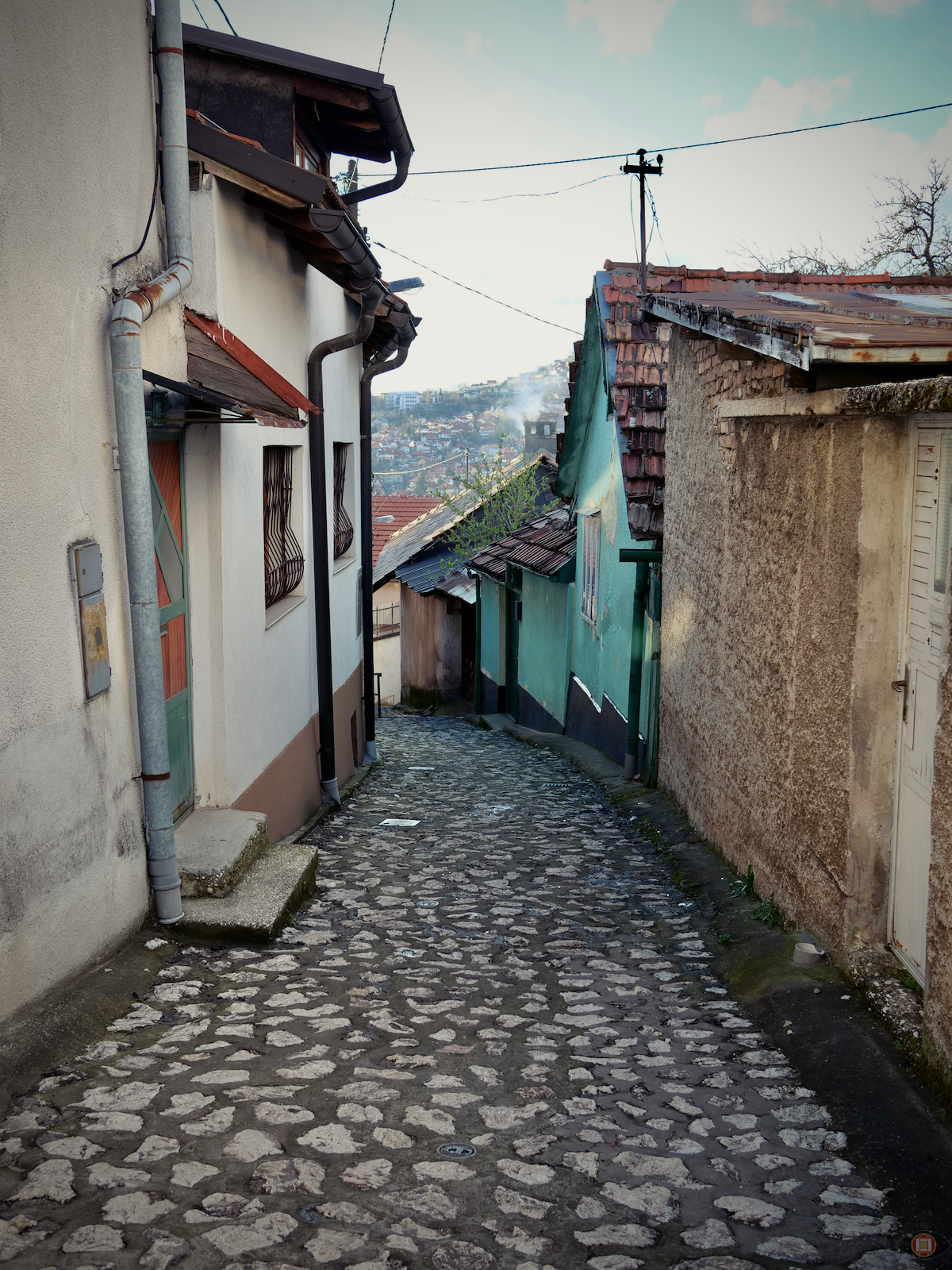
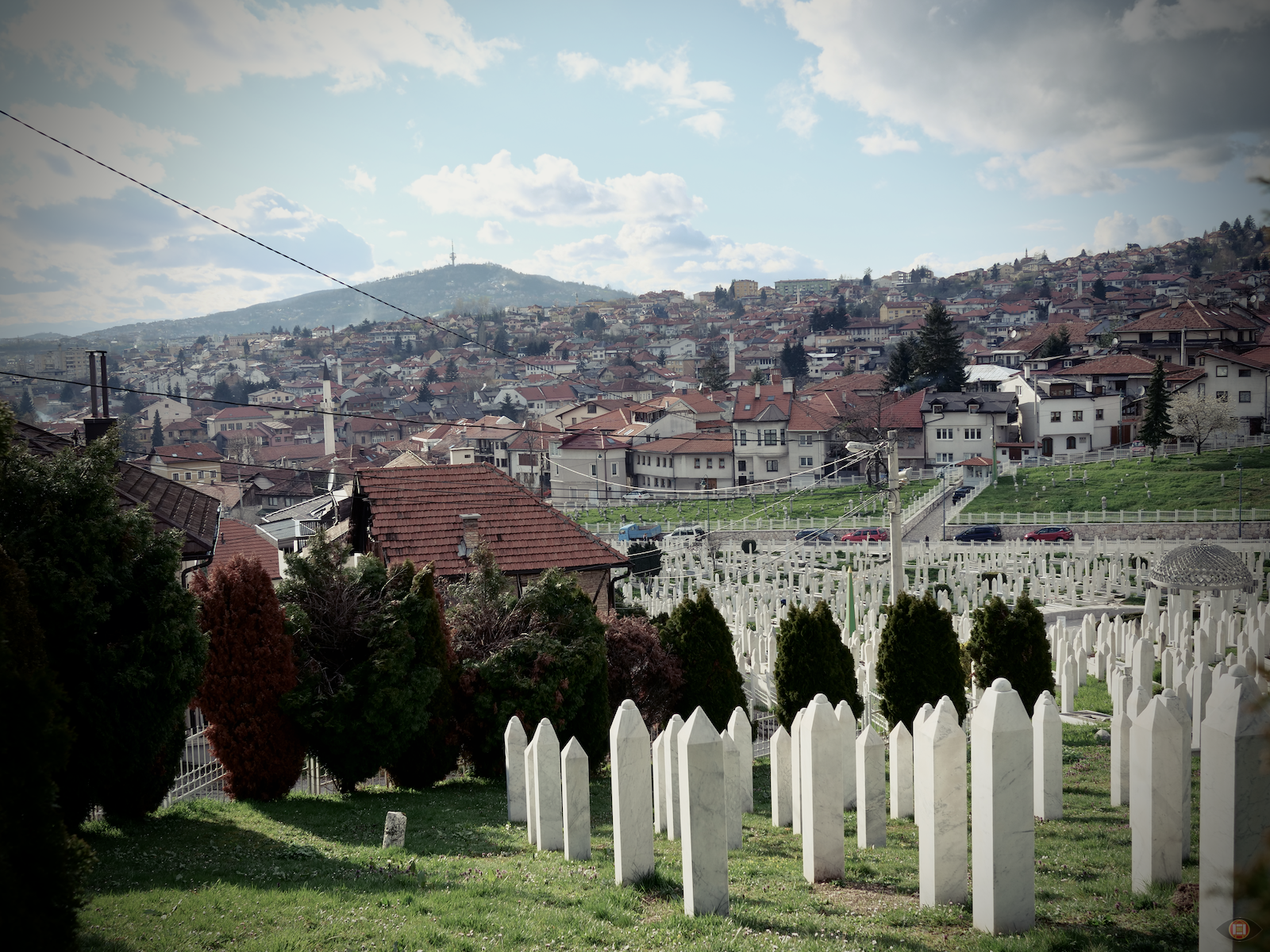
Catching up, my companion asks me how much the bill came to. Gifted at maths, the transaction is quickly calculated.
‘He overcharged you. And you tipped him! Oh my God….’
He puts his head in his hands, laughing. I am not laughing. I feel cheated and silly and I make to march back to the shop.
‘No! Stay here. It’s done.’
But I am already gone.
Moments later I stand again before the man.
‘I know you stole from me.’
He reaches into the till to return it.
‘I don’t want the money back. I just want you to know i’m not an idiot.’
︎
The lesson I do not see at that moment is that I was the one being taught charity by the thief during Ramadan. I turned on my heels not because of the waiter, but because of my own struggle for an identity––an illusion begging to be verified by others…especially by strangers.
︎
‘I’m not an idiot’, the fool screams into the abyss! Asking for change, incapable of it himself. Fighting, fighting, making a prison of his mind, firing bullets into his own heart, blaming others instead.
︎
